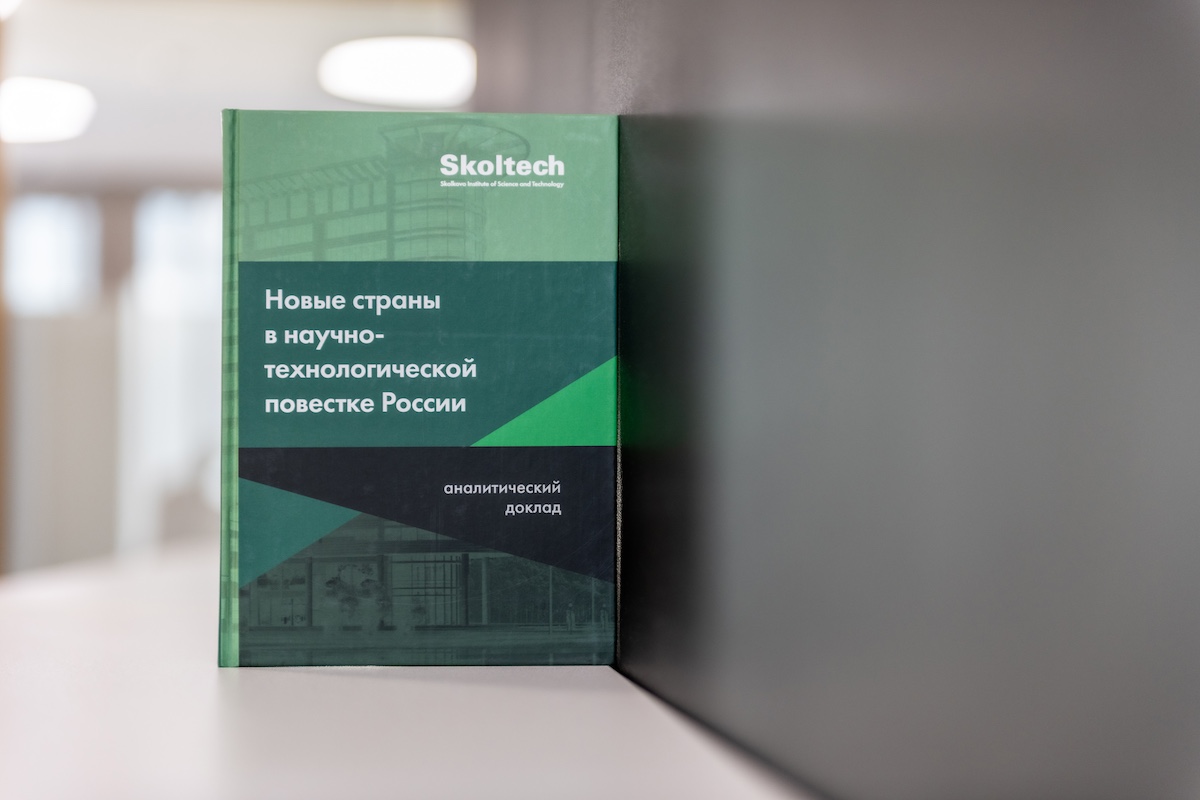A group of authors from the Analytical Department of Science and Technology Development at Skoltech directed by Irina Dezhina, Doctor of Economics and the head of the department, published a book “New Countries in the Scientific-Technological Agenda of Russia.” It is the eighth edition in a series of public analytical reports — the White Books of Skoltech. The authors provide an in-depth analysis of three countries that hold potential for expanding scientific and technological cooperation with Russia: India, Bangladesh, and Iran. The e-version is available on the department’s website.
Russia keeps looking for new partners. According to the authors, of interest may be an expansion of cooperation with Iran, India, and Bangladesh. Iran has been under sanctions for more than 40 years, but science and technology are still advancing there. The book looks at two areas in which Iran obtained original results — information and communication technologies as well as bio and nanotechnologies. India has already created an enabling environment and infrastructure for attracting foreign investments and granted support to startups. To boost their development, the government reduces bureaucratic impediments and facilitates access to funding. The science and technology area in Bangladesh is the least developed in Asia, however the government’s efforts to put an end to poverty and unemployment through information and communication technologies and freelance produced results: Bangladesh ranked second after India by the number of IT solutions that do not require high skills.
“It is not a conventional research study; rather, it is an overview with expert estimates of prospective areas for developing international academic ties with Russia. We agreed on the unified format: each country is analyzed in three aspects. We begin with reviewing the socioeconomic status of the country and its position by major parameters of the innovation development. Readers should clearly see what the country is and what historic background it has. The second part gives a detailed account of resources and research results, major documents that regulate the science and technology sphere, and organizations responsible for its development. The third part explores areas of technological development in the countries that may be of relevance for Russia. The book ends with a SWOT analysis for each country that results in a list of opportunities for partnership and potential threats,” says Irina Dezhina.
The authors concluded that the most promising areas for international cooperation between Russia, Iran, and India can be information and telecommunication technologies and biomedicine. Cybersecurity and 5G also show potential for collaboration. In biomedicine, the countries can cooperate in vaccines and antitumor drugs. A partnership with Bangladesh can be effective due to a high demand for biomedical technologies there, including those needed for creating vaccines, antiparasitic drugs, and antibiotics. Another direction with considerable potential is supplying IT solutions.
A RAS academician, Doctor of Economics, professor Nataliya Ivanova believes that the analytical report meets the challenges of the time and provides a comprehensive account of science and technology in Iran, India, and Bangladesh: “While fostering academic relations and technological cooperation with these countries in the context of sanctions imposed by western governments is promising, the authors show that it will require sustained effort to consider local conditions.”
The White Books of Skoltech include such editions as “New Manufacturing Technologies”, “Development of Photonics in Russia and the World”, “Current Technological Trends in Oil and Gas Development and Production”, “Promising Markets and Technologies of the Internet of Things”, “Technologies for Human Brain Resources Restoration and Enhancement”, “Technological Transformation of Beef and Dairy Cattle Breeding”, “Demand Factors for Electric Vehicles among the Russian Population”.
Contact information:
Skoltech Communications
+7 (495) 280 14 81

